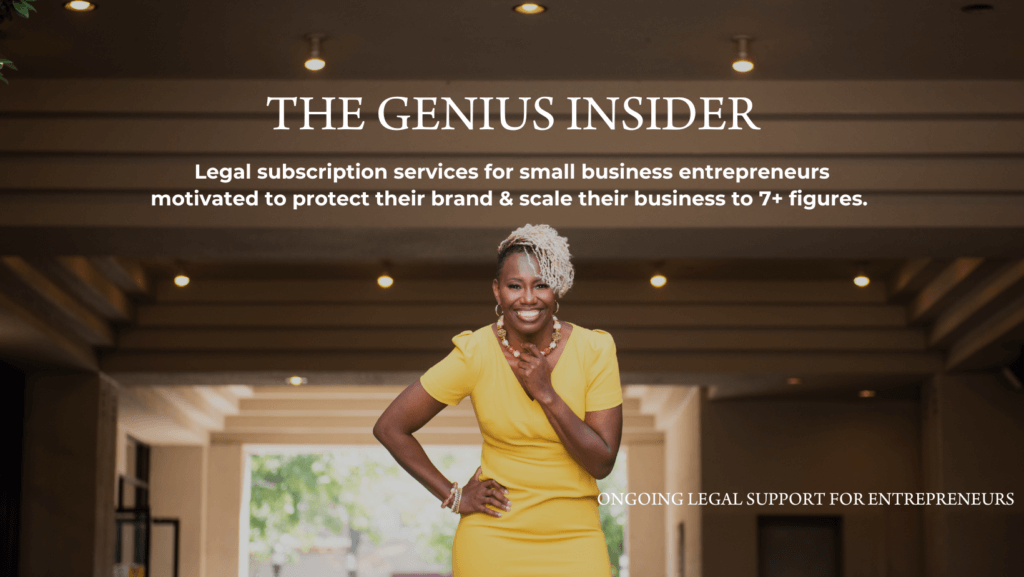What’s up geniuses? So I follow Freddie Taylor of Urban Intellectuals on social media and if you don’t know Urban Intellectuals they sell these great black history flashcards. I bought a few sets for my girls. If you have kids or even for yourself, I would definitely check them out. There’s a lot of information in those cards that I didn’t know myself.
But anyway, he was saying, he has this thing that he does. What are we mad at this week? And so the answer for last week apparently is Twitter. So Twitter initiated the daily limit on the number of posts users can view, causing them to jump ship. First, everybody was going to Spill, which is a black-owned platform created by former Twitter employees, and they have raised millions of dollars with the sole goal of competing with Twitter. And then Meta entered the ring. And Meta entered the ring with their platform called Threads, which is also a text-based social media platform, but their platform is connected directly to IG, Instagram. And within hours, 70 million people signed up. And that didn’t sit too well with Elon Musk. So what did he do in typical Musk fashion? He threatened to sue.
So Musk is the legend that met a broach for one of my Twitter employees specifically because the trade secrets they had access to. So that’s what we’re gonna talk about today. We’re gonna talk about trade secrets and what to do when you’re working for someone and you wanna transition into entrepreneurship doing the same thing that you were doing for them. Like how does that work? What considerations should you keep in mind? So that’s what we’re talking about in today’s podcast.
First things first, trade secrets. Trade secrets are confidential and proprietary information that gives a business a competitive edge. Meaning that if someone were to have access to that information, you would lose your space in the market. It doesn’t necessarily have to be something that can be registered, like some form of intellectual property, like a trademark or a copyright or a patent. It can be something as simple as formulas. Think Coca-Cola’s formula or KFC Seven Herbs and Spices that we don’t know about. Like those are trade seekers, right? It can be processes, it can be a customer list, it can be software, it can be marketing strategies, or just any other type of confidential data that if revealed would harm the business competitive edge.
In trade secrets, I always tell people, sometimes they come to me and they’re like, oh, I wanna protect this, I wanna do this. And I tell them that, well, it’s not a form of intellectual property is not a trademark, it’s not a copyright, it’s not a patent, but trade secrets play a vital role in many industries and their protection is crucial for long-term success.
The thing that you need to know about trade secrets is that they are regulated on a state level so the laws can vary, but what a lot of states have done, 47 states as a matter of fact, they have adopted the Uniform Trade Secrets Act, which is UTSA if you ever see that out anywhere which this acts allows for civil and criminal remedies for those who improperly obtain trade secrets. And there are three basic components of a trade secret under this UTSA Act.
The first thing, first things first, nevermind. The first thing is the information has to be a secret. Like does in the name, right? Trade secret. If everybody knows it, is not a secret and there’s nothing that you can do if your competitors get a hold of it. The second thing is it has to give your company a competitive edge and the third thing is very important, you have to have taken reasonable steps to keep that information a secret. So even if it is a secret, but then you’re telling everybody and their mom about it, then you haven’t done what you need to do. If you’re working with, contractors and you’re not restricting the information that they have access to only information that they need in order to finish this project you could be jeopardizing your trade secret.
So trade secrets don’t protect information that’s common knowledge, information that you fail to keep to yourself. Like they don’t do that. And we just, so that’s why I say you jeopardize your trade secret when you aren’t careful about the information that you disclose. In a trade secret, unlike other forms of intellectual property, they don’t have an expiration date. They literally last for as long as they are relevant.
If somehow, you know, you’ve been in business 20 years and the market finally catches up and starts to use, which you consider a trade secret, but they hadn’t had access to your trade secret or anyone that had access to it, it’s not necessarily that you have a claim against them from using something similar or the same. If they didn’t steal it or obtain it illegally, they’re perfectly capable of coming up with something for themselves. So that’s that.
Now we’re going to talk about what happens when you leave a job and you’re in that same industry and you want to like when you leave a job to start a business that’s in that same industry, I should say. And so there are several factors to keep in mind to protect yourself and your new business.
First, it’s very important to review any type of employment agreements or contracts that you have with your current employer. A lot of times people will be like, oh, I want to do X, Y, and Z. And then I’m presented with a contract to review it. I’m like, okay, well, did you see this, and this? You need to know whether or not those agreements have confidentiality clauses or non-compete or non-solicitation before you say, hey, me, I’m coming to start my own business. And I’m going to take my secretary, and I’m going to take my whatever who normally helps you. And they’re going to come work for me. Well, can you even do that? So let’s talk about that a little further. Like I said, they typically include those clauses which will prevent you from doing that.
So let’s talk about those clauses. First of all, a confidentiality clause. A confidentiality clause typically prohibits a confidentiality clause typically prohibits the disclosure of trade secrets and confidential information that’s obtained through your it can also contain language that prevents you from using that information for any benefit other than the employer. And the thing about confidentiality clauses is that obligation continues even after you leave the job. So it’s not like, oh, I just have to keep this stuff confidential while I work here. No. When you leave, you still have a duty to keep that information confidential.
Now non-compete clauses on the other hand, restrict individuals from engaging in similar business activities or working for a competitor in a specific amount of time in a specific geographical area. The thing about non-compete clauses is that the government doesn’t wanna tell people that they can’t work but they also have to balance that with the fact that, hey, this company has invested a lot of time and money into training this employer, right? And so they had to balance that. So what they did is they said, hey, employer, you are allowed to tell these people that they can’t do this type of work, but it has to be restricted. That limitation is not indefinite and it’s not everywhere. So it’s for a specific period of time, and typically one or two years, in a specific geographical area. Meaning that if you do business in Georgia, it makes sense for you to restrict them from not being able to do that work in Georgia, but it doesn’t make any sense for you to restrict them from doing it in New York or California. So there are definitely some considerations when it comes to non-compete clauses that you have to be aware of when you’re reviewing your employment contracts to make sure that they actually do apply to you.
The third clause that you should be aware of, and I talked about this or mentioned it briefly, is that non-solicitation clause, which is gonna prevent employees from soliciting clients, employees, or anything of that nature from their former employer. Either one of these clauses could prevent challenges for employees when you’re transitioning into entrepreneurship. And they also vary in their enforceability depending on where you live. So make sure you consult with an attorney to make sure to see how these clauses affect you and your goals of entrepreneurship.
Now once you start your own business, it’s vital that you know how to protect not only your own trade secrets, but how your employer’s trade secrets will affect what you’re doing outside of the contract.
So first thing that you wanna make sure that you don’t do is bring any trade secrets from your previous employer to your new venture. Don’t do that. It’s very important that you respect the confidential obligations and avoid any type of accusations or misappropriation. Like you don’t have time for that type of lawsuit, that can just slow you down and cost you a lot of money.
So the second thing you want to do is implement a strong internal safeguard. You want to make sure that as you’re creating your own trade secrets, that you restrict access to sensitive information, that you use the written agreements like the non-disclosure agreements with employees, and that you have security measures in place. And then also make sure that you’re communicating with your employees and training them on what trade secret are so that they will know what information they can and cannot disclose. So that’s very important.
Sometimes these contracts will be like kind of vague and one of the things that I tell people is like put it if you have confidential and throw away the key, basically. Only pull out that key when you have to share that information with someone who needs that information in order to perform their job. And only the information that they need, and you’ll hear me say that over and over again, but that’s very, very important.
If you’re gonna transition from employee to employer, you need to do some thorough planning and due diligence. You need to research your industry, your competitors, and also the legal landscape to fully understand what your position is as you’re making this transition.
The next thing that I would tell you to do is be upfront. Talk to your former employer about your intentions and that’s if it’s possible. Sometimes it’s not possible, but if it’s possible, be upfront and say, hey, I’m leaving, I’m gonna start my consulting firm doing X, Y, and Z, I’m gonna open up my own practice. Like, make sure that you are having that conversation if it’s possible. Because if you maintain open communication, it can really help create a better transition and you never know, they might become a referral source for you. You don’t know what that relationship is like or could be like. Don’t assume that just because you’re leaving to create a competing business that there’s gonna be animosity. It might not be.
And the last thing that I would tell you to do is that you should really consult with an experienced business attorney to guide you through this process and ensure that you’re in compliance and safeguarding your interests as you’re transitioning into entrepreneurship. Several of our genius insiders were transitioning into entrepreneurship and they used their benefits for consultations, document review, and contract drafting. And all this was to ensure that they were no legal complications and that their interests were protected when working with their parties and leaving their employer.
And I’ll say something else, and this is… This is not really on the subject directly of trade secrets. But something Freddie said stood out to me. He said that, you know, don’t be too impressed with the success that Threads is having because they had two bigger brothers that paved the way, referring to Facebook and Instagram. And the reason that I mentioned this is because there are a lot of people that listen to the podcast that are in this building phase, in this launching phase, and they’re like, dang. 70 million people I can’t get my community to get a hundred people when you can’t compare yourself to them just like Freddie said like they had a roadmap and They already had an audience because what do you think those 70 million people came from? They were already on Facebook and Instagram, right? And all they had to do and they made it real easy to to open up an account when you’re on Instagram, so don’t beat yourself up too bad
The other thing I want to say, it has to do with branding. And this does relate to trade secrets. And I don’t know if you’ve heard me tell this story before, but I’m gonna tell it. It’s a story of Coca-Cola and how at one point they had, when it first started, they had two owners, but they decided to go their separate ways and they negotiated. And one owner took the name and the other owner took the formula. And the guy with the formula was like all excited because this is the formula that people loved. So he just knew that he had the winning hand. Turns out he was wrong. People recognize the Coca-Cola brand and they were loyal to it and they liked it. So they stuck with the brand and not the formula. And the formula was the trade secret. And I say that to say this, that if, people are jumping ship from Twitter, not necessarily just because Threads open up, but it’s because of the reputation and the brand that Twitter has started to create for itself. And so as you’re building your business, you wanna keep that in mind.
Your brand is not just the name or the logo or your tagline, those are all identifiers. But what do you stand for? What do people expect when they work with you? What kind of values do you have? How do you treat your customers? Those are things that really, really matter when you’re building your brand. That’s it. I just wanted to mention those last two thoughts.
So what do you think of Threads? I don’t know. You tell me. Have you joined Spill or Thread? I will tell you that I joined Spill. I will also tell you that I won’t be active there because I don’t have time to jump on, you know, different trends, social media trends, and go here and there just because it’s a new hot thing. I don’t, that’s not, that’s not what I’m doing right now. So, but what about you? What are you doing? But so I do have a spill. I’ll tell you, I think my spill is just my name. No, hmm, I don’t know. It’s either LaConya Murray or it’s Off The Mark IP Solutions. Follow me on there. I’m one of those two things. But let me know if you’re on either one of those platforms.








Responses